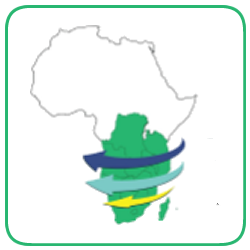
Background
Sub-Saharan Africa (SSA) has the lowest energy access rates in the world. Electricity reaches only about half of its people, while clean cooking only one-third; roughly 600 million people lack electricity and 890 million cook with traditional fuels (IEA, 2018).
Energy efficiency is the cheapest way of increasing energy access!
By switching on the power of energy efficient lights and appliances, the burden on national grids drops, giving more people reliable electricity, businesses become more competitive, while households save, and the environment benefits from the fall in CO2 emissions.
Project on Energy Efficient Lighting and Appliances (EELA) in Southern and Eastern Africa (EELA)
The EELA project has been launched with the objective to improve access to sustainable energy for women and men, girls and boys, and mitigate negative externalities of the energy system. This will be achieved by promoting a market transformation for energy efficient lighting and appliances in the East African Community (EAC) and the Southern African Development Community (SADC) regions. More specifically the project aims to create market and institutional conditions to enable a transformation of the sector to stimulate increased diffusion of efficient lighting products and appliances across all sectors.
This project will bring regional support to private sector-led activities that will lead to increased use of energy efficient high-quality lighting and appliances through regional regulatory and trade harmonization interventions; while also considering inclusiveness of all project activities to assure socially sustainable project outcomes.
The envisaged activities include development of minimum energy performance standards (MEPS); capacitating testing facilities in the member states; supporting the development of local production, and development of sustainable end-of-life treatment activities.
The overall objective of this regional EELA project is to improve access to sustainable energy to all, and mitigate negative externalities of the energy system. It is implemented by the United Nations Industrial Development Organisation (UNIDO) in collaboration with the East African Centre for Renewable Energy and Energy Efficiency (EACREEE) and the SADC Centre for Renewable Energy and Energy Efficiency (SACREEE). The project is funded by the Swedish International Development Cooperation Agency (Sida).
During a preparatory phase of the project, a market study on energy efficient lighting was conducted, capacity needs of relevant institutions and testing centres assessed, gender dimensions on EELA assessed, a theory of change for the project developed, relevant stakeholders consulted, and the project implementation arrangements and partnerships framework developed. During a regional consultation workshop, the outcomes of the Energy Efficient Lighting and Appliances Preparatory phase (EELA PREP phase) and the project intervention strategy was validated.
The Project steering Committee has already been established and had their inaugural meeting in Tanzania early August 2019.
Partner structure
The main partners for UNIDO during the implementation of the EELA project are the regional subsidiary bodies and institutions of SADC and EAC, such as, the SADC Centre for Renewable Energy and Energy Efficiency (SACREEE - www.sacreee.org), the East African Centre for Renewable Energy and Energy Efficiency (EACREEE - www.eacreee.org), the SADC Cooperation in Standards (SADCSTAN), the East African Standards Committee (EASC), the energy regulatory bodies, the two regional power pools (EAPP and SAPP) and other institutions who will play a key role in transforming the regional energy efficient lighting and appliances market.
The main technical partners in the EELA project are CLASP (www.clasp.ngo) and the Swedish Energy Agency (www.sea.org ).
Establishment of regional Technical Committees for the development of regionally harmonized Minimum Energy Performance Standards (MEPS)
One of the key outputs of the EELA project is the development of regionally harmonized
MEPS for lighting and appliances for both SADC and EAC.
The main activities of the regional MEPS process comprise:
- Market research;
- Joint development of criteria for establishment of MEPS;
- Establishment of regional technical committees under SADCSTAN and EASC;
- Organization of workshops to discuss and validate the MEPS; and
- Engagement with national stakeholders such as government ministries responsible for energy, Bureaus of standards, financial institutions, private sector foundations, and trade associations, and strengthening of testing capacity.
The establishment of the regional TCs is being guided by the processes of SADCSTAN and EASC respectively.
Objectives of the 1st regional Technical Committee meeting
The first TC meeting has the following objectives
- Discuss and adopt the ToRs for the TC
- Mapping of existing standards for lighting in the EAC countries
- Present and discuss the draft regional MEPS for lighting
- Discuss and agree on the work plan and timeframe towards the development and adoption of the MEPS for lighting and harmonization with SADC.
- Discussion on the next product groups to be worked on within the TC

